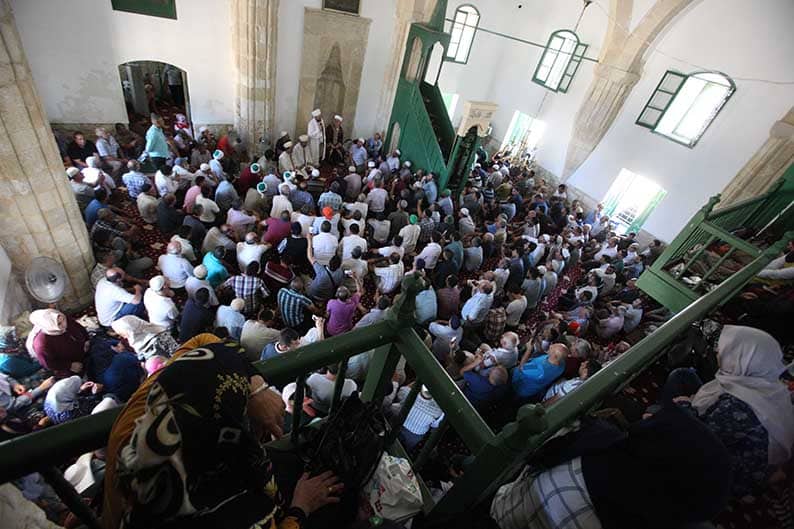A US State Department report published on Saturday said that Cyprus needs to encourage greater access to religious sites on both sides of the divide and reduce discrimination against minority religious communities.
According to the 2023 US State Department report on Religious Freedoms, US embassy representatives met with government officials from the Republic’s interior, foreign and justice ministries to discuss religious freedom, including encouraging greater access to religious sites on both sides of the Green Line and reducing discrimination against minority religions.
As regards the situation on the Republic, the report said that visitors could access only five of the 19 mosques designated as cultural heritage sites, as well as five other mosques not so designated, for a total of 10 functioning mosques.
It added that the antiquities department continued to limit regular access to Hala Sultan Tekke, one of the 10 functioning mosques, to only two of the five daily prayer times, although it routinely granted expanded access during Ramadan and at the imam’s request.
The report also said that authorities continued to deny permission to perform animal slaughter for food production in accordance with methods prescribed by Jewish law.
It also noted that a Muslim community representative reported the community did not face difficulties accessing halal meat.
The report mentioned the activities of the Technical Committee on Cultural Heritage (TCCH), one of the bicommunal (Greek Cypriot and Turkish Cypriot) technical committees established as part of the UN-facilitated settlement negotiations process.
It said that in September, the committee finished the conservation of the mosque in Kalo Chorio/Vuda village in Larnaca district and in May, it completed the restoration of the mosque in Maroni village in the same district, while the antiquities department continued restoration works of the Grand Mosque in Limassol.
According to the report, in the Republic, religious minority groups continued to report societal pressure to engage in public Greek Orthodox religious ceremonies, such as weddings and christenings, while Greek Orthodox Christians reported they sometimes faced ostracism from their community if they converted to another religion.
The report, which also records the situation in the north, noted that Turkish Cypriot ‘authorities’ stated they approved 128 of 185 requests to hold Greek Cypriot religious services between January and December, compared with 107 of 173 requests between January and December 2022.
According to Greek Orthodox representatives, it added, Turkish Cypriot ‘police’ continued to monitor their church services and check participants’ identification. In services conducted after permission was requested, ‘police’ checked and photographed the identity cards of all participants.
A representative of the Church of Cyprus said there was little or no access to some Orthodox religious sites that were deteriorating, many of them turned into stables, mosques, or used for other purposes.
A representative also said Greek Orthodox cemeteries in the northern part were in a dilapidated state; crosses and other religious symbols were broken and removed, and some cemeteries were completely flattened. Of the approximately 500 cemeteries, only three to five were in good condition, according to the representative, the report said.
It also cited multiple media reports, according to which in November, Rabbi Chaim Hillel Azimov, who presided over a small Jewish congregation in the north, departed Cyprus with his family, citing increasing hostility, including by Turkish Cypriot ‘officials’ toward the Jewish community after Hamas’ October 7 terrorist attack on Israel.
The report added that the Turkish Speaking Protestant Association (TSPA) said Turkish Cypriots who converted from Islam to other faiths often experienced societal pressure, verbal abuse, insults, public criticism and workplace discrimination.







Click here to change your cookie preferences